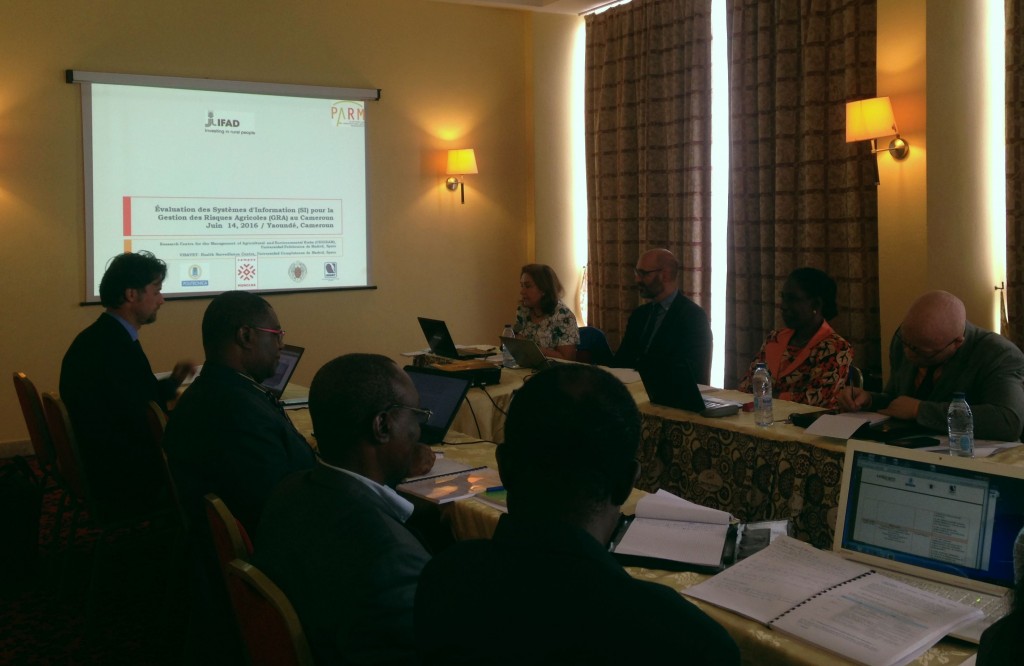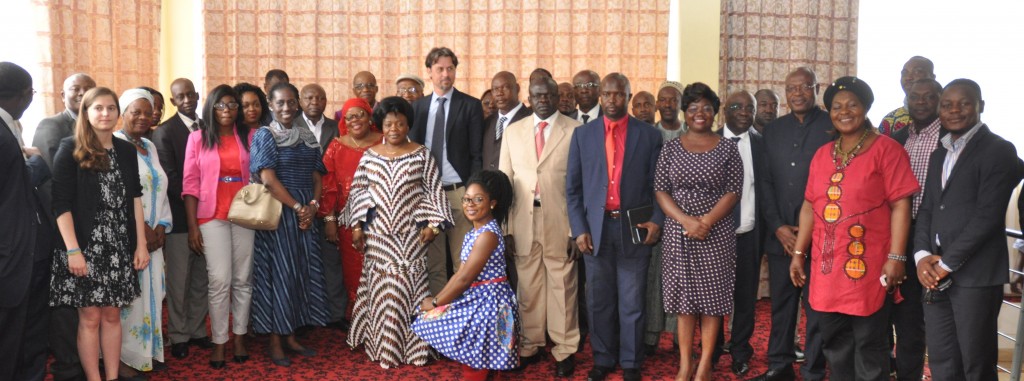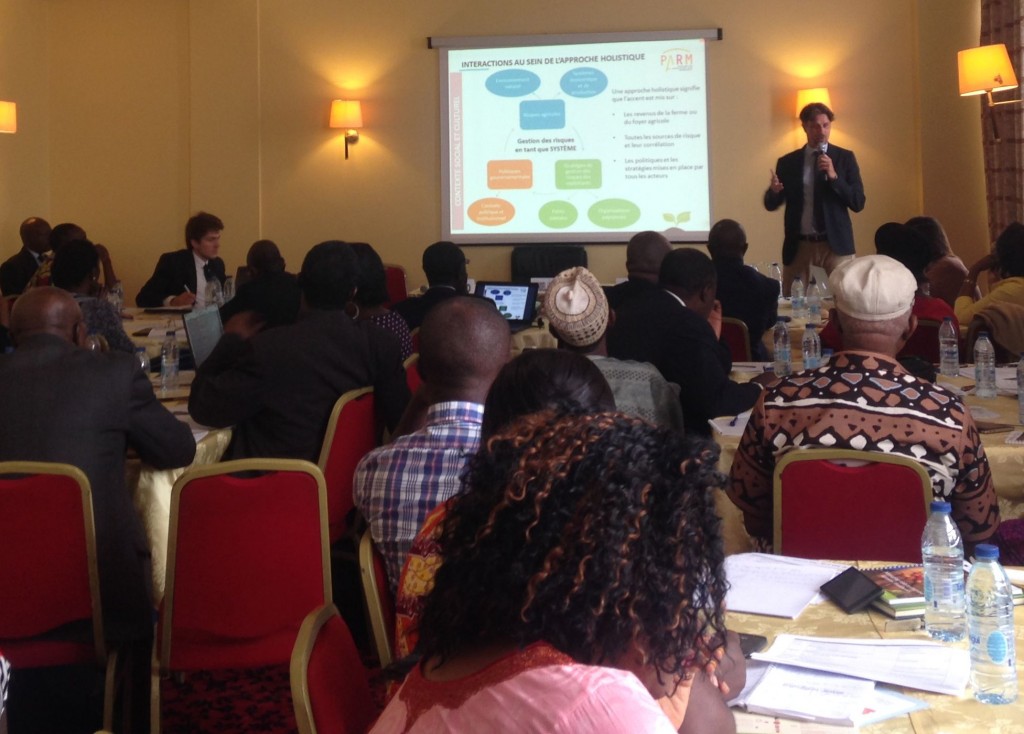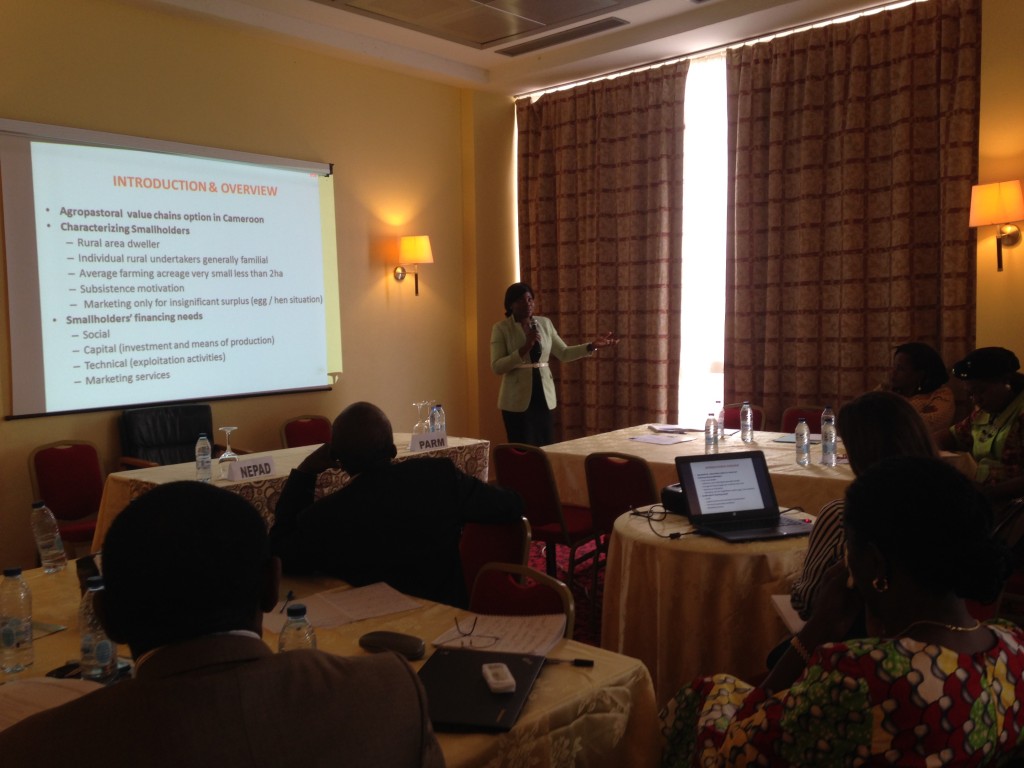
On June 15-16, PARM held a successful Capacity Development Seminar in Yaoundé, Cameroon, to strengthen the holistic agricultural risk management (ARM) approach in the country, and to exchange views on the prioritization of agricultural risks according to the main national stakeholders. On the previous day, a technical discussion brought together national and international experts on Agricultural Risk Management Information Systems.
Cameroon faces a large variety of risks, due to its size and to the diversity of the agro-ecological zones in the country. How can we help farmers facing these risks in their day-to-day activities? After receiving the official commitment of the Government of Cameroon and meeting twice with the Delegate Ministry of the Ministry of Agriculture and Rural Development, PARM organized in June a Capacity Development Seminar, as well as a Technical Workshop on Information Systems. These first steps will help in the definition of the PARM activities in the country, including with respects to the Risk Assessment Study.
Information Systems Workshop
On June 14, PARM organized a technical workshop on a study of information systems for agricultural risk management in Cameroon, which was presented by two experts from the Research Center for the Management of Agricultural and Environmental Risks (CEIGRAM) and VISAVET, two Spanish research centers which undertook a cross-country study on information systems.
The resulting Cameroon Country Report will outline the availability and quality of information for agricultural risk management purposes, focusing both on the existence, quality and useful access of the available information, as well as on the gaps in information and access tools for the main stakeholders.
The objective of the workshop was to present the study and gather feedback, comments and recommendations from the national experts, in order to make the final report as informative and useful as possible. Local experts representing different public actors involved in information systems attended the workshop, with representatives from the Ministries of Agriculture, Transport, Health, and the National Institute of Statistics.
After the presentation of the report, experts voiced their comments on the results and on the way forward. Despite some clear interest in the improvement of information systems, participants discussed several constraints linked to costs, accessibility, and to the technical skills and infrastructure needed to set-up, update and maintain an integrated system of information. They also discussed the importance of differentiating between data, which often exists, and information, which is useful for different stakeholders. Indeed, the transformation of data into information is a resource intensive process.

Technical workshop on Information Systems form Agricultural Risk Management
Capacity Development Seminar
On June 15 and 16, PARM organized its first Capacity Development Seminar in Cameroon, in partnership with NEPAD and the Ministry of Agriculture and Rural Development. The Seminar took place in Yaoundé and brought together over 40 high-level national stakeholders from government agencies, research institutions, the private sector, and farmers organizations. Ms Clémentine Ananga Messina, Minister Delegate of the Ministry of Agriculture and Rural Development was present and opened the workshop.

Participants of the Capacity Development Seminar held in Yaoundé on 15-16 June 2016
OBJECTIVES AND PROGRAMME OF THE SEMINAR
Over two days, the Seminar gave participants an introduction to the topic of agricultural risk management and its application in Senegal, through a mix of presentations by the PARM team and by national stakeholders, and through group discussions and analysis of specific sectoral issues.
The general objectives of the Seminar were to enable participants to:
- Enhance their skills in Agricultural Risk Management and understand the holistic approach to Agricultural Risk Management
- Elaborate key concepts in ARM and use them to identify and analyse risks in agriculture
- Gain a first introduction to risk assessment methods ans specific risk assessment tools available nationally.
During the first day, participants learned about the holistic agricultural risk management approach, and the methodology for rigorous risk assessments. Following the morning presentations, participants were able to define risks and their typologies, identify the different sources of risks, the severity of risks, the layers of risks and of responsibilities in agricultural risk management. They learned how to prioritize risks based on their severity and frequency, and formed groups based on their geographical area to discuss their specific risks and risk management strategies.

Presentation of the holistic approach to Agricultural Risk Management
On the second day, participants were introduced to agricultural risk management tools, first through a general introduction, and then through specific presentations by national stakeholders, on credit and finance, agricultural insurance, warehouse receipts systems, and contract farming. Participants therefore got exposed to initiatives taking place nationally, and were able to interact directly with the people involved in these initiatives.
The afternoon was dedicated to group work, and participants thought about which tools would be most appropriate for the risks that they had identified the previous day.

Presentation on contract farming
Next steps
Following the workshop, the Risk Assessment study will soon start in Cameroon, so as to provide the government with a complete and up-to-date picture of the agricultural risks present in the country. The Study on Information Systems will be updated to integrate the input from national stakeholders before publishing.